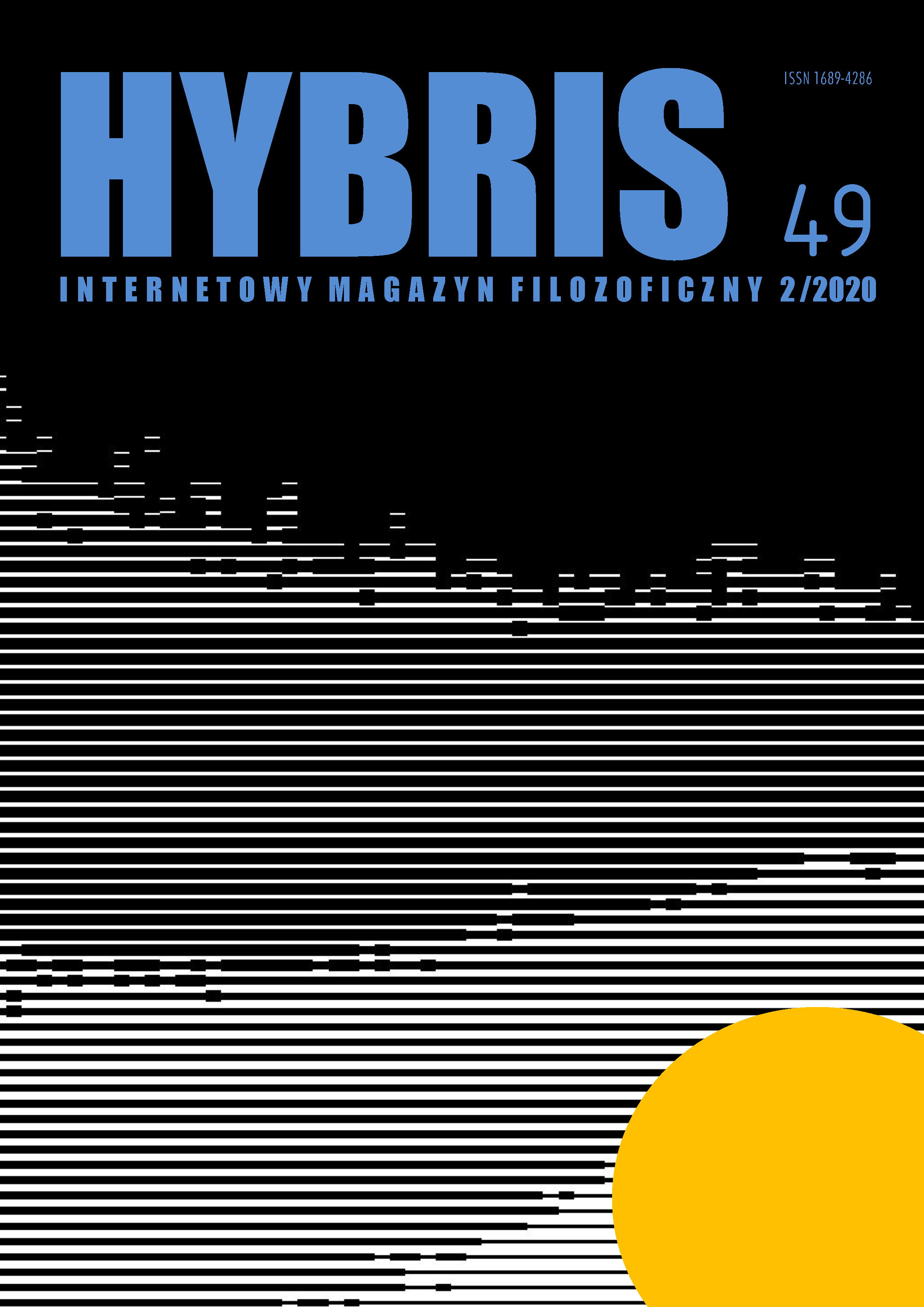Uprawnienia indywidualne w filozofii politycznej Roberta Nozicka
DOI:
https://doi.org/10.18778/1689-4286.49.03Słowa kluczowe:
uprawnienia, Nozick, Friedman, racjonalna sprawczość, jednostkaAbstrakt
With respect to Robert Nozick’s political philosophy (as it is to be found in Anarchy, State, and Utopia), one of the most prominent theses is the one that asserts that in Nozick’s mind individual rights are founded on the principle of self-ownership - the principle that says that all individuals have, with regard to themselves, rights identical with (or parallel to) rights of property. In this paper we want to focus on slightly different interpretation of Nozick’s thought. First, we summarize Nozick’s account of rights: its main points being the individual being proper subject of rights and the nature of rights as side-constraints. Then we turn our attention to the metnioned interpretation itself. It was proposed by Mark D. Friedman, and it synthesizes Nozick’s insights on this topic scattered throughout his book. It focuses on argument “from moral form to moral content” (from the fact that the form of morality includes side-constraints to the content of libertarian constraint against aggression) suggested by Nozick and on features in virtue of which persons have rights - this features being free will, rationality, moral agency and ability to live one’s life according to some general conception of it.
Bibliografia
Bader, R. (2010). Robert Nozick. New York: Continuum.
Zobacz w Google Scholar
Cohen, G. A. (1995). Self-Ownership, Freedom, and Equality. Cambridge: Cambridge University Press.
Zobacz w Google Scholar
DOI: https://doi.org/10.1017/CBO9780511521270
Friedman, M. D. (2011). Nozick’s Libertarian Project: An Elaboration and Defense. London: Bloomsbury.
Zobacz w Google Scholar
Grafstein, R. (1983). The Ontological Foundation of Nozick’s View of Politics: Robert’s Rules of Order. Philosophical Studies: An International Journal for Philosophy in the Analytic Tradition, 44 (3), 401-424.
Zobacz w Google Scholar
Harman, G. H. (1965). The Inference to the Best Explanation. The Philosophical Review, 74 (1), 88-95.
Zobacz w Google Scholar
DOI: https://doi.org/10.2307/2183532
Hart, H. L. A. (1955). Are There Any Natural Rights?. The Philosophical Review, 64 (2), 175-191.
Zobacz w Google Scholar
DOI: https://doi.org/10.2307/2182586
Hunt, L. H. (2015). Anarchy, state, and utopia. An advanced guide. West Sussex: Wiley Blackwell.
Zobacz w Google Scholar
Juruś, D. (2012). W poszukiwaniu podstaw libertarianizmu. W perspektywie rothbardowskiej koncepcji własności. Kraków: Księgarnia Akademicka.
Zobacz w Google Scholar
Mack, E. (2002a). Self-Ownership, Marxism, and Egalitarianism. Part I: Challenges to Historical Entitlement. Politics, Philosophy, and Economics, 1 (1), 119-146.
Zobacz w Google Scholar
DOI: https://doi.org/10.1177/1470594X02001001004
Mack, E. (2002b). Self-Ownership, Marxism, and Egalitarianism. Part II: Challenges to the Self-Ownership Thesis, Politics, Philosophy, and Economics, 1 (2), 237-276.
Zobacz w Google Scholar
DOI: https://doi.org/10.1177/1470594X02001002004
Nozick, R. (1981). On the Randian Argument. W: J. Paul (red.), Reading Nozick. Essays on Anarchy, State, and Utopia (206-231). Totowa, New Jersey: Rowman & Littlefield.
Zobacz w Google Scholar
Nozick, R. (2010). Anarchia, państwo i utopia. Tłum. P. Maciejko, M. Szczubiałka. Warszawa: Aletheia.
Zobacz w Google Scholar
Scheffler, S. (1981). Natural Rights, Equality, and the Minimal State. W: J. Paul (red.), Reading Nozick. Essays on Anarchy, State, and Utopia (148-168). Totowa, New Jersey: Rowman & Littlefield.
Zobacz w Google Scholar
Thomson, J. J. (1981). Some Ruminations on Rights. W: J. Paul (red.), Reading Nozick. Essays on Anarchy, State, and Utopia (130-147). Totowa, New Jersey: Rowman & Littlefield.
Zobacz w Google Scholar
Wolff, J. (1991). Robert Nozick: Property, Justice and the Minimal State. Cambridge: Polity Press.
Zobacz w Google Scholar
Pobrania
Opublikowane
Jak cytować
Numer
Dział
Licencja

Utwór dostępny jest na licencji Creative Commons Uznanie autorstwa – Użycie niekomercyjne – Bez utworów zależnych 4.0 Międzynarodowe.






